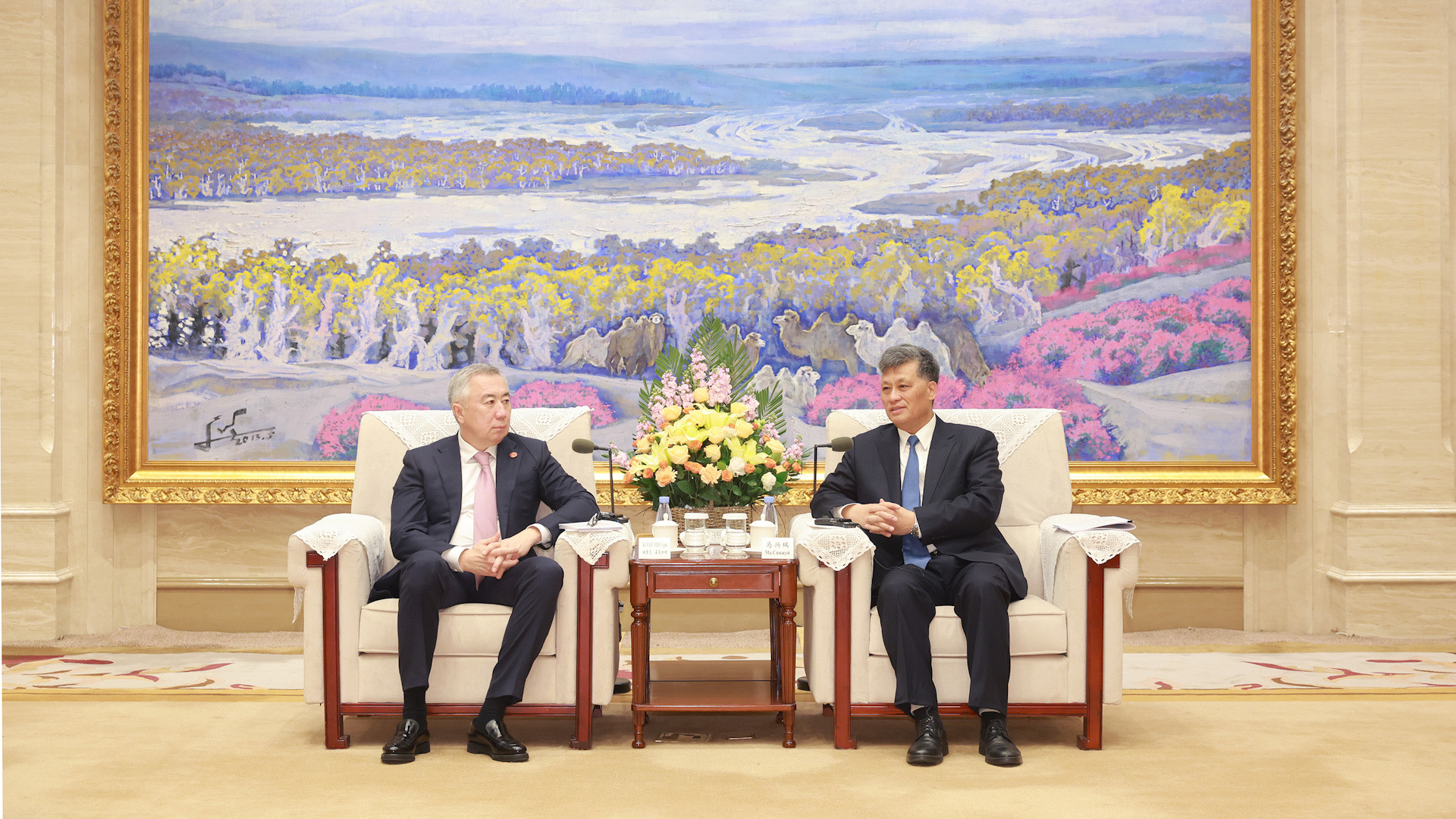ASTANA – Kazakh Deputy Prime Minister Serik Zhumangarin met with Ma Xingrui, Secretary of the Xinjiang Uygur Autonomous Region (XUAR) Communist Party, on Dec. 6 in Urumqi, where he expressed Kazakhstan’s intention to double trade with XUAR, reported the Prime Minister’s press service.

Serik Zhumangarin, the Kazakh Deputy Prime Minister and Ma Xingrui, the Secretary of the Xinjiang Uygur Autonomous Region Communist Party. Photo credit: primeminister.kz
“The leaders of Kazakhstan and China have set a goal to increase bilateral trade to US$100 billion. After analyzing the export and import potential of various goods, we identified 180 product categories worth US$1.6 billion that we could additionally supply to China, including goods from the metallurgical, petrochemical, food, chemical, and engineering industries, as well as construction materials,” said Zhumangarin.
XUAR is Kazakhstan’s largest trade partner among Chinese Regions, accounting for nearly half of the bilateral trade. In 2023, trade surged 62% to US$20.3 billion, with trade turnover in the first nine months of 2024 rising by 22.46% to US$17.67 billion.
Zhumangarin praised efforts to establish green corridors at border checkpoints to expedite agricultural product shipments and proposed extending the 24/7 operations at the Nur Zholy-Khorgos checkpoint to all road border crossings. Plans are also underway to open new checkpoints at Narynkol-Muzart in the Almaty Region and Terekty-Aktobek in the East Kazakhstan Region.
Kazakhstan has also proposed a multimodal transit corridor linking Russia, Kazakhstan, and China via the Yertis River, with an initial freight capacity of 2–2.5 million tons.
“For this corridor, we plan to open a fourth railway crossing at Maikapchagai-Zimunai and build a river port near the village of Tugyl in Kazakhstan. Another promising project involves developing a route from Konayev to China’s Yining along the transboundary Ili River. This initiative could be implemented through cooperation between Kazakh and Chinese businesses,” said Zhumangarin.
Over 80% of China-Europe land shipments pass through Kazakhstan. Freight volumes along the Middle Corridor rose 23% in the first nine months of 2024 to 3.4 million tons, with projections reaching ten million tons annually by 2030. Kazakhstan plans to increase container train numbers from 600 to 2,000 by 2029 and build a multimodal logistics terminal at Khorgos.
Zhumangarin highlighted bureaucratic barriers hindering agricultural exports to China, including stringent controls on grain imports and lengthy accreditation processes for Kazakh companies. Resolving phytosanitary protocols for potatoes and beet pulp and lifting beef and pork export restrictions would significantly boost trade.
Kazakhstan-XUAR-Hong Kong collaboration
In a trilateral meeting with Hong Kong’s Secretary for Commerce and Economic Development, Algernon Yau, the parties explored a new framework for collaboration.
The idea of strengthening cooperation between Kazakhstan and Hong Kong, with XUAR serving as a bridge, was first introduced by Xingrui in a bilateral meeting in June. The trilateral meeting marked a significant step in advancing this partnership.
“China is one of the major investors in Kazakhstan’s economy, with Chinese capital involved in about 145 investment projects worth over US$38 billion across various industries. Around 5,000 joint ventures operate in Kazakhstan,” said Zhumangarin.
He proposed creating a Kazakhstan-XUAR-Hong Kong Cooperation Council to promote trade, investment, and industrial cooperation. The council’s first meeting is planned for next year in Kazakhstan.
Kazakhstan also proposed joint ventures with Hong Kong businesses in agricultural processing and suggested establishing a joint investment fund based in Urumqi or Hong Kong. Other proposals included creating a research center in Kazakhstan to develop sustainable crop varieties and technologies.
Tourism and e-commerce
Xingrui proposed creating joint tourism routes, allowing Hong Kong visitors to Urumqi to explore Kazakhstan. Regular air and land routes between Kazakhstan, XUAR, and Hong Kong were suggested to facilitate this.
Yau highlighted Hong Kong’s financial and aviation hub status and encouraged Kazakh companies to register in Hong Kong to access the Greater Bay Area and ASEAN markets.
Kazakhstan expressed interest in Hong Kong’s e-commerce expertise and invited representatives of the Hong Kong Stock Exchange to Kazakhstan to share their experience.
“We are keen to expand cooperation under the Digital Silk Road initiative. We have positive experience collaborating on national pavilions on China’s electronic trading platforms, and we are interested in developing more,” said Zhumangarin.
